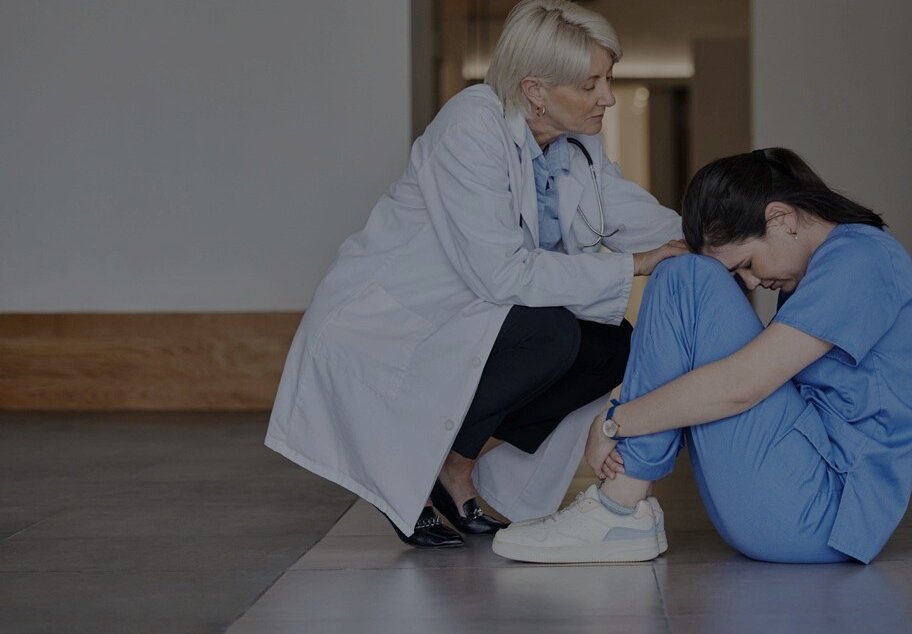
For companies: Fast-track procedure for skilled workers
The fast-track procedure for skilled workers has been introduced nationwide to enable companies to employ international skilled workers more quickly. This procedure reduces the recognition process from several months to just a few weeks. This is a win-win situation for both sides: skilled workers can start working in their chosen profession more quickly, and companies benefit more quickly from their investment in international recruitment.
In this article, you will learn how the procedure works and how you can apply for it.
What is the fast-track procedure for skilled workers?
The fast-track procedure allows people from third countries to have their qualifications recognised more quickly in Germany, enabling them to start working or training in Germany sooner. If a qualification is not fully recognised in Germany, skilled workers can take part in a training programme to acquire the missing qualifications. Unlike the normal recognition procedure, the fast-track procedure is initiated by the companies or future employers of the skilled workers themselves.
Requirements
The following requirements must be met before a fast-track skilled worker procedure can be initiated:
- The skilled worker must come from a third country
- There must be an existing employment or training contract between the skilled worker and the company
For training or qualification measures, German language skills of least the following level must also be demonstrated:
- Qualification measure: A2
- Qualification measure for healthcare professions: B1
- Company trainees (at least two years of vocational training): B1
- Company trainees (less than two years of vocational training): A2
Procedure
- Consultation with the immigration office (Ausländerbehörde):
First, you must attend a consultation on the recognition procedure. To do this, contact the relevant immigration office in your federal state. - Power of attorney and other documents:
Have your skilled worker authorise you to initiate the fast-track recognition procedure. Your local authority will have a template for this. You should also prepare all the documents and paperwork required for the procedure. - Agreement between the company and the immigration office:
Once you have all the documents, you can initiate the procedure at your immigration office. The documents will then be reviewed by the immigration office. Once all the documents are complete, you will conclude an agreement with the immigration office that regulates your obligations as well as those of the skilled worker and the authorities involved. - Recognition of foreign qualifications:
The immigration office forwards the documents for recognition to the relevant authorities. They now have two months to process the application and make a decision. - Approval procedure by the Federal Employment Agency:
Once the professional qualification has been recognised, the only thing left is the approval procedure by the Federal Employment Agency. - Preliminary approval from the immigration office:
If all requirements are met, the immigration office will issue preliminary approval for the visa, which will be sent to you as the employer. You must then forward this to your skilled worker.
Subsequently, the skilled worker is given an expedited appointment within three weeks at the foreign mission in their country of origin. A decision on the application will then be made within a further three weeks. If the visa application is approved, the skilled worker may enter Germany.
Duration & costs
The procedure usually takes no longer than two months.
You must also expect the following costs:
- Fee for the procedure after conclusion of the agreement: 411 euros (additional costs may be incurred due to review procedures by other authorities)
- Costs for the translation and certification of documents
As a rule, the skilled worker bears the cost of 75 euros for the visa.
Documents & translations
Different documents are required depending on whether the person is coming to Germany for training, qualification measures, a nursing profession or a job in another field. You should also be prepared for the fact that some documents will need to be translated and certified.
The following documents are generally required:
- Passport
- Power of attorney (you can obtain a template from Make it in Germany)
- Certificate of change of name (translation required), if applicable
The following additional documents are also required:
Training and qualifications
- Training contract
- Proof of language skills
- Proof of sufficient funds to cover living expenses
Nursing and healthcare professions:
- Declaration of employment
- Diploma/certificate (translation required)
Jobs in other fields
- Subject overview (translation required)
- Diploma/certificate (translation required)
- Declaration of employment
- CV in German
- Proof of relevant professional experience (translation required)
- Other qualifications (translation required)
Do you need to have documents translated?
lingoking provides certified translations of documents that are guaranteed to be recognised by all authorities in Germany.
About the author
Katharina Weckend, Content & SEO Manager
Katharina joined lingoking as a Content and SEO Manager in 2024. She handles our content and SEO strategy and writes texts for our website, guide and other lingoking media. “I am happy I get to pass on knowledge in our lingoking guide and help break down language barriers.”




